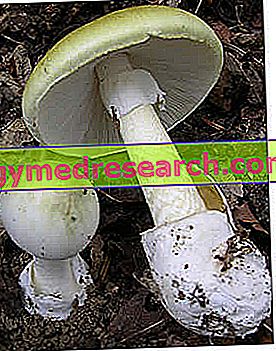Definition
The cold is a very common infectious viral disease affecting the upper respiratory tract, that is, involving nose and throat, although it can extend to the lower airways: we are treating one of the most widespread diseases ever, fortunately of simple resolution, even if highly contagious and rather unpleasant.
Causes
The cause of the cold lies in a virus-borne infection, transmitted by direct contact between a bearer and a healthy individual; the transmission of the pathogen is favored by sneezing and coughing which, through saliva micro-drops, facilitate the infection of healthy subjects. Furthermore, a person can be infected simply by talking, shaking hands or touching objects contaminated by the virus.
- Risk factors: immunocompromised patients, elderly, children
Symptoms
Cold symptoms occur 1-3 days after exposure to the virus; generally, the symptomatological picture is expressed in: asthenia, nasal congestion, muscular pains, fever, fever, runny nose, sore throat or itchy throat, watery eyes, sneezing, cough.
Diet and Nutrition
Natural Care
Information on Cold - Cold Cure Drugs is not intended to replace the direct relationship between health professional and patient. Always consult your doctor and / or specialist before taking Cold - Cold Treatment Medications.
drugs
The cold can disappear even without taking drugs of any kind, usually within 7 days of the first symptoms manifesting; however, it is possible to administer some active ingredients to control the symptoms, if the general symptomatic picture of the patient worsens. When the patient suffering from a cold also suffers a bacterial insult (typical of the cold associated with sore throat), it is possible to take antibiotic drugs to remove the pathogen.
Given the multiplicity of viruses involved in the manifestation of colds, it is not possible to devise a vaccine that is effectively effective in preventing the disease.
Medications to lower fever : when a cold is accompanied by fever, specific medications can be taken to speed healing. Paracetamol is the drug of excellence.
- Paracetamol or acetaminophen (eg. Tachipirina, Efferalgan, Sanipirina, Piros, Tachidol): the administration of this drug is useful for lowering fever, a symptom that often accompanies colds. Paracetamol is administered at a dosage of 325-650 mg per day every 4-6 hours; alternatively, take 1 gram every 6-8 hours. The dosage depends on the patient's condition, age and weight. The drug can also be taken intravenously (route of administration rather rare in the context of the cold): 1 gram every 6 hours or 650 mg every 4 hours for adults and adolescents weighing more than 50 kilos: if the patient weighs less than 50 kilos, administer 15 mg / kg every 6 hours or 12.5 mg / kg every 4 hours.
Nasal decongestants : indicated to treat nasal congestion caused by colds. They are over-the-counter medications, sold without a prescription, formulated as tablets, nasal spray or syrup. Do not use the product for too long.
- Oximetazoline hydrochloride, 0.025-0.05% solution (eg Vicks sinex, Oxilin, Equimet): apply 4-6 sprays in each nostril twice a day, as needed for the 0.025% solutions; carry out 2-3 applications for each nostril twice a day for the 0.5% solutions.
- Phenylephrine (eg Isonephrine, Phenyl CL DYN, Triaminic FLU, Nasomixin CM): take 10-20 mg (one tablet) of active per os every 4 hours. The drug is also available in the form of oral suspension, chewable tablets, patches, effervescent tablets.
- Pseudoephedrine (eg. Actifed, Actigrip): pseudoephedrine is probably the most used drug in therapy as a nasal decongestant, also (but not only) in the context of colds; the drug is used both in combination with other drugs (eg antihistamines, paracetamol), and in monotherapy. Start the treatment by taking 30-60 mg of the drug orally every 4-6 hours, as needed. Continue therapy by taking 120 mg of active twice daily. Do not exceed 240 mg a day. Consult your doctor
Drugs for the treatment of cough in the context of colds : as analyzed, cough is a recurring phenomenon associated with colds; in case of severity, it is possible to take mucolytics (mucus fluidizers, in the case of fat cough with particularly thick consistency sputum), and expectorants (to facilitate the emission of phlegm).
- Guaifenesina (eg. Broncovanil, Vicks Tosse Fluidific): the drug is a rather powerful expectorant, to be used for the treatment of coughs in the context of colds. It is recommended to take 200-400 mg of substance by mouth every 4 hours, as needed. Do not take more than 2.4 grams of active per day. Guaifenesina is also available associated with cortisone derivatives, cough suppressants (eg hydrocodone: eg Dynatuss HC), formulated in the form of tablets or syrup. Consult your doctor.
- Bromexina (eg. Bisolvon Linctus): the drug is a mucolytic often available in the form of syrup: it is recommended to take 5-10 ml 3 times a day for adults; it is possible to increase the dose up to a maximum of 48 mg a day. For children, it is recommended to reduce the initial dose to 2.5-5 mg, three times a day.
- Erdosteine (eg Erdotin): it is an expectorant derived from homocysteine, with mucolytic and antioxidant activity. The drug is available in the form of syrups or capsules to be taken at a dose of 600 mg / day, equally distributed in two assumptions, except for further medical prescription.
Medication for the treatment of sore throat in the context of colds
When a cold begins with a sore throat, it is possible that the damage has been exacerbated by a bacterial insult. In this case, it is recommended to start an antibiotic treatment, always and only after ascertaining the pathogen involved in the insult. The choice of antibiotic depends on the pathogen. Here are some examples:
- Clarithromycin (eg Biaxin, Macladin, Klacid, Soriclar, Veclam): it is recommended to take one tablet of 250-500 mg of drug every 12 hours. In case of suspected or proven infection with Haemophilus influenzae, take 500 mg of active. Continue the therapy for 10 days.
- Amoxicillin (eg. Augmentin, Klavux): when bacterial pharyngitis is diagnosed from the first symptoms (even in the context of the cold), start therapy with 250-500 mg of orally active, every 8 hours, for 7-10 days, or 500-875 mg orally twice a day. If bacterial pharyngitis is diagnosed late, it is recommended to take this penicillin at a dose of 775 mg per os once a day, an hour before meals for 10 days. Particularly useful in case of pyogenic Streptococcus superinfections.
For further information: see the article on medicines for the treatment of sore throat
Vitamin C against colds : the beneficial effect of vitamin C for the treatment of colds is questionable, although some studies have observed the beneficial-therapeutic effect of vitamin C in the prevention of colds. The effectiveness of ascorbic acid to prevent colds can be observed at doses higher than 1 gram.
Below, some pharmacological specialties based on vitamin C: Redoxon, Cebion, Cimille, Univit, C Tard, Agruvit, Univit, Duo C.
The cold is not a serious disease and fortunately almost always disappears without complications; without resorting to drugs, it is possible to take advantage of natural medicine, clearly when possible: fumigations are ideal for dissolving mucus, especially when enriched with essential oils such as eucalyptol and menthol, which promote the inhalation of steam, ensuring a perception of comfort immediate. In this way, cold symptoms are relieved, speeding up healing time.
Also echinacea (dry extract), elderberry (herbal tea), spirea olmaria (herbal tea), zinc and lime (herbal tea) are other natural "drugs" for the treatment of colds.



